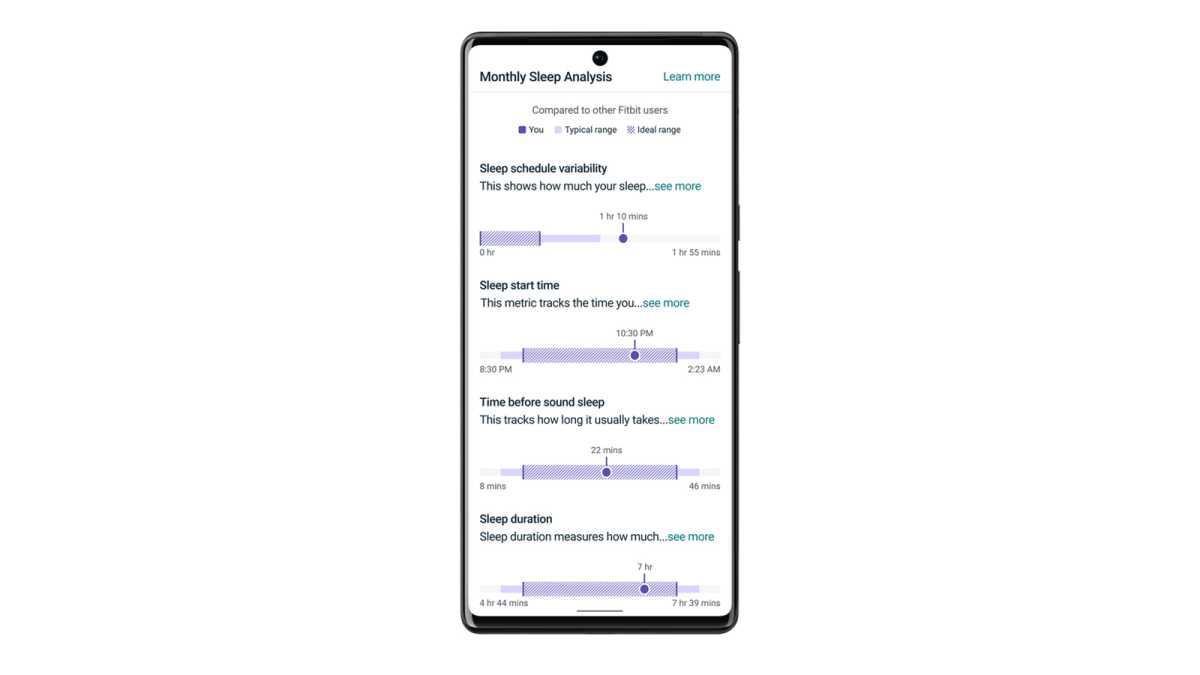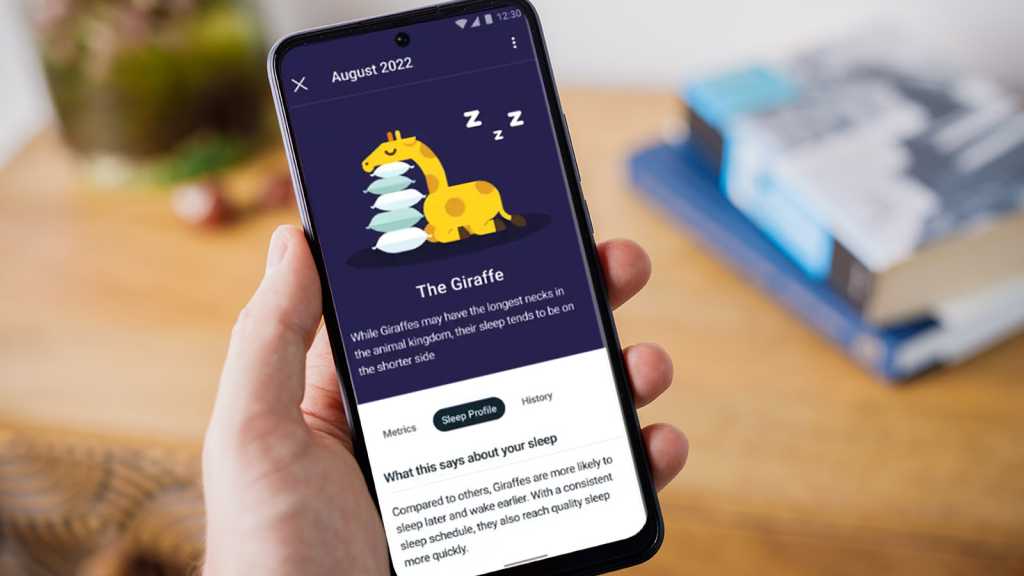Fitbit is launching a new feature for its paid Premium service called Sleep Profile that builds on the basic sleep tracking offered by current Fitbit trackers.
The feature, which was announced in a blog post by Fitbit’s parent company Google, will assign you one of six cartoon animals to help you understand what kind of sleeper you are.
While current Fitbit models like the Charge 5, Sense, and Versa 3 can be worn at night and tell you when you’ve been in light, deep, and R.E.M. stages of sleep, Sleep Profile goes further by adding what Fitbit calls a “longitudinal analysis of your sleep patterns”.
Sleep Profile records your sleep and analyses it across 10 metrics over a month period. These metrics include stats Fitbits already track such as duration and restfulness but now adds news ones such as sleep schedule variability and time before sound sleep to produce a monthly report, delivered on the 1st of the calendar month.
It is designed to give Fitbit wearers insights into whether their sleep is typical for their age and gender, and to give tips on how to improve their sleep.
You’ll also be able to find out if you’re a giraffe, bear, dolphin, hedgehog, parrot, or tortoise, which is frankly information everybody should be privy to.
“Wear your Fitbit device to sleep for at least 14 nights per calendar month to receive an assessment,” Fitbit said in the blog post.
“The more you wear the device to sleep, the more precise the evaluation.”

Fitbit
Not all Fitbits
The feature will work with people signed up to Premium and who use Sense, Versa 3, Versa 2, Charge 5, Luxe, or Inspire 2 trackers, and who wear their Fitbit to bed for at least 14 days in a calendar month. Notably no children-centric Fitbits are supported.
Fitbit said a research team studied 1,000 sleep features in an analysis of 1.87 million sleep hours with the aid of a neurologist, sleep experts, and research scientists. That’s a lot of hours, though it also said to date Fitbit has analysed 22 billion hours of sleep data.
Sleep Profile is a clear indication from Fitbit that the company thinks it can pull ahead of rivals like the Apple Watch in providing people with useful sleep data backed by science. Many fitness trackers can approximate sleep patterns byu detecteing movement and heart rate, but it’s often unclear how scientific the readings are beyond that.
Fitbit is asking users to pay for the privilege though, with Premium costing £7.99/€8.99/$9.99 per month or £79.99/€79.99/$79.99per year. The company appears to be doubling down on the paid subscription model.
“Premium uplevels your Fitbit experience by helping you better understand your sleep patterns, your readiness to exercise and how your body responds to stressors, all with additional guidance and insights to help you achieve your health, fitness and wellness goals,” it said.
Sleep Profile is rolling out to Fitbit Premium now, and users will receive their first analysis on 4 July.


